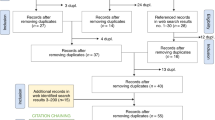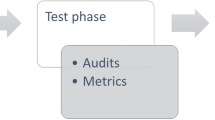Abstract
The ethics of artificial intelligence (AI) is a research topic with both theoretical and practical significance. However, the ethical and moral aspects of conceptual, ontological, semantic, and knowledge modeling, more specifically, and which are sometimes found in AI applications, is not being given sufficient attention. I argue that it should. Whether considering using or developing these meaning-focused models, there are ethical aspects. This paper offers a preliminary outline about this potentially new research field, discussing: some questions and areas of concern, their significance; scenarios of ethical import, and initial ethical guidelines. A focus area, potential case study, and lens through which to see the ethical significance at hand, is ontologies, with emphasis on the most abstract ontologies (so-called generic, foundational, top-level or upper ontologies). This would aim to show the ethical import of highly abstract (often philosophical) ontological choices, assumptions, and their effects on data, developers, users, and society. In particular, I stress the need for critical examination of such models, their content, their intended meanings, assumptions, ideologies, as well as the development process. Both the ethics of, and ethics in, these activities are, therefore, of interest. Topics in the ethics of AI that are relevant include: transparency, bias, data-sharing, privacy, control over data, etc. This paper thereby contributes to the ethics of AI, as well as the ethics of information, of knowledge managment and relevant topics by developing and discussing the ethics of ontology (and similar systems). Future development will refine and add to the ideas expressed in this paper.
Similar content being viewed by others
Notes
I declare this term to directly express the shared emphasis on meaning, and semantics and indirectly express the claim that this aspect calls for ethical awareness.
Abstract theories about the generic nature of how the world truly is, what sorts of things exist, what is real, what is not real, what are fundamental categories to classify things, what it is to exist etc.
Symbol-structures, such as so-called classes, classifiers, properties, relations, entities, named individuals, etc., in some computable formalisms.
I.e., topic areas, scientific disciplines, broad human activities, a set of concepts of interest, the content of a particular database, a business or enterprise, etc.
Ethical aspects of the former call for being informed, and critically examining all assumptions (e.g., imported content at all degrees of abstraction). The latter calls for a self-reflective grasp of any assumptions (ideological or otherwise).
A logical (and technical) commitment, for instance, may be to certain rules of reasoning, or to a computable logic-based formalism.
They are sometimes described as being domain-neutral, domain-independent, applicable to any domain, which itself may be controversial.
Questions, often found in philosophical ontology and metaphysics, such as what is personhood? What is the nature of the mind and its relationship to the body? What are the basic categories of the world? Is X real? What is the nature of X?
Ideology, broadly construed for brevity to include the assumed worldviews, philosophical theories, metaphysical accounts, ontological commitments.
E.g., so-called knowledge representation languages, schema languages, ontology languages, etc.
We should ask: to what extent does meaning truly get encoded? Meaning is at least a mind-internal phenomena. Perhaps it is not actually encoded, but rather—in developing these models we are simply replacing one symbol system for another, always needing the observing mind to comprehend.
A couple of exceptions may be: a requirement being imposed by a decision-making authority (e.g., management, funding source, etc.); or sensitive (proprietary, private, etc.) information.
The use of ‘baggage’ is to emphasize that the added content and complexity may be incorrect, inaccurate, undesired, misrepresentative, etc. It is also to emphasize that the computational context is not the most appropriate one for metaphysical claims.
As an ethical side note: if a user does not care about those details, that disinterest should not be taken as allowance to add details or to justify hiding them from the user.
References
Aguado-de-Cea G, Montiel-Ponsoda E, Poveda-Villalón M, Giraldo-Pasmin OX (2015) Lexicalizing ontologies: the issues behind the labels. Procedia Soc Behav Sci 212:151–158, ISSN 1877–0428, https://doi.org/10.1016/j.sbspro.2015.11.313
Alexopoulos P (2020) Semantic modeling for data avoiding pitfalls and breaking dilemmas. O’Reilly, USA
Arneson P (2009) Ontology. In: Littlejohn SW, Foss KA (eds) Encyclopedia of communication theory. Sage, Los Angeles, pp 695–698
Ball J (2021) In Search of a Universal Knowledge Representation. https://medium.com/pat-inc/in-search-of-a-universal-knowledge-representation-9dfd690bbc7f#_edn1
Ball J (2022) Semantic’ ontology—the last one we’ll ever need. https://medium.com/pat-inc/semantic-ontology-the-last-one-we-ll-ever-need-3fc591dd22a3
Busse J, Humm B, Lubbert C, Moelter F, Reibold A, Rewald M, Schl̈uter V, Seiler B, Tegtmeier E, Zeh T. Actually, What Does “Ontology” Mean?, In: Journal of Computing and Information Technology, CIT 23, 2015, 1, pp 29–41
Colombo S (2020) Representation and misrepresentation in knowledge organization systems—the case of bias. In: Knowledge organization at the interface, proceedings of the sixteenth international ISKO conference, pp 98–104
Dahlstrom DO (2010) Chapter 17 Hermeneutic ontology. In: Poli R, Seibt J (eds) Theory and applications of ontology: philosophical perspectives, Springer
European Union (2019) Ethics guidelines for trustworthy AI. https://digital-strategy.ec.europa.eu/en/library/ethics-guidelines-trustworthy-ai
Floridi L, Cowls J (2019) A unified framework of five principles for AI in society. HDSR. Issue 1.1. https://hdsr.mitpress.mit.edu/pub/l0jsh9d1/release/7. Accessed 21 Sept 2021
García G, Hudon B, Guimarães O, Pinho F, Milani S (2016) Theoretical dialogs about ethical issues in knowledge organization. Knowl Organ 43(5):338–350. https://doi.org/10.5771/0943-7444-2016-5-338
Guimarães JAC, Campbell DG, Milani SO, Holland H (2019) Cultural biases in knowledge organization systems: a discussion regarding international university rankings. NASKO 7:48–62
Iliadis A (2018) Algorithms, ontology, and social progress. In Global Media and Communication 2018, Vol. 14(2) 219–230
Janowicz K (2016) Semantic Interoperability is an Oxymoron, Power Point Presentation at Ontology Summit 2016
Jobin A, Lenca M, Vayena E (2019) Artificial Intelligence: the global landscape of ethics guidelines. https://arxiv.org/ftp/arxiv/papers/1906/1906.11668.pdf. Accessed 21 Sept 2021
Keet M (2021) Bias in ontologies - a preliminary assessment. https://arxiv.org/
Krisnadhi A (2014) Cross-repository data integration using ontology design patterns. https://daselab.cs.ksu.edu/sites/default/files/ODPDataIntegration-BambergTalk.pdf. Accessed 25 Apr 2022
Löbner S (2013) Understanding semantics, 2nd edn. 978-0-415-82673-0
Müller VC Ethics of Artificial Intelligence and Robotics. Standard Encyclopedia of Philosophy. https://plato.stanford.edu/entries/ethics-ai/. Accessed 14 Sept 2021
Nirenburg S, Raskin V (2004) Ontological Semantics. MIT Press. ISBN 9780262140867
Nyholm S, John-Stewart Gordon JS (2021) Ethics of Artificial Intelligence. https://iep.utm.edu/ethic-ai/. Accessed 14 Sept 2021
O’Leary DE (2016) Ethics for big data and analytics. http://raw.rutgers.edu/docs/wcars/38wcars/Presentations/Dan%20-%20Ethics%20for%20Big%20Data%20and%20Analytics.pdf. Accessed 14 Sept 2021
Poole, Mackworth (2017) Artificial Intelligence: Foundations of Computational Agents. Cambridge University Press. https://artint.info/2e/html/ArtInt2e.Ch13.S2.html
Rovetto, Robert (2013–2019) Ethics in Ontology. PhilPapers. https://philpapers.org/rec/ROVEIO. Accessed 28 Sept 2022
Rovetto, Robert (2022) Ethics of Semantics. In: The 4th U.S. Semantic Technologies Symposium Series, September 2022. https://us2ts.org/2022/program
Schloen D (2014) Beyond Gutenberg: Transcending the Document Paradigm in DHQ: Digital Humanities Quarterly 8(4). https://dhq-static.digitalhumanities.org/pdf/000196.pdf. Accessed 11 May 2022
Shirky C (2003) http://www.shirky.com/writings/semantic_syllogism.html First published 7 Nov 2003
Stalker ID, Mehandjiev N (2006) A devolved ontology model for the pragmatic web. In: Schoop M, Moor AD, Dietz J (Hrsg.) Pragmatic web—Proceedings of the first international conference on the pragmatic web, 2006. Gesellschaft für Informatik e.V., Bonn (S. 38–52)
Vinarcik M. Hypermodeling: A Profile for Teaching SysML Modeling https://strategy.asee.org/hypermodeling-a-profile-for-teaching-sysml-modeling.pdf
Acknowledgements
Thanks to anonymous reviewers for their helpful input. Thanks also to Stefano Borgo, Paul Brandt, Michael DeBellis, Heinrich Herre, Elisa Kendall, and Adam Pease for their comments.
Funding
This work was unfunded.
Author information
Authors and Affiliations
Corresponding author
Ethics declarations
Conflict of interest
There is no conflict of interest.
Additional information
Publisher's Note
Springer Nature remains neutral with regard to jurisdictional claims in published maps and institutional affiliations.
Independent researcher, New York, United States of America & EU.
Rights and permissions
Springer Nature or its licensor (e.g. a society or other partner) holds exclusive rights to this article under a publishing agreement with the author(s) or other rightsholder(s); author self-archiving of the accepted manuscript version of this article is solely governed by the terms of such publishing agreement and applicable law.
About this article
Cite this article
Rovetto, R.J. The ethics of conceptual, ontological, semantic and knowledge modeling. AI & Soc (2023). https://doi.org/10.1007/s00146-022-01563-3
Received:
Accepted:
Published:
DOI: https://doi.org/10.1007/s00146-022-01563-3




